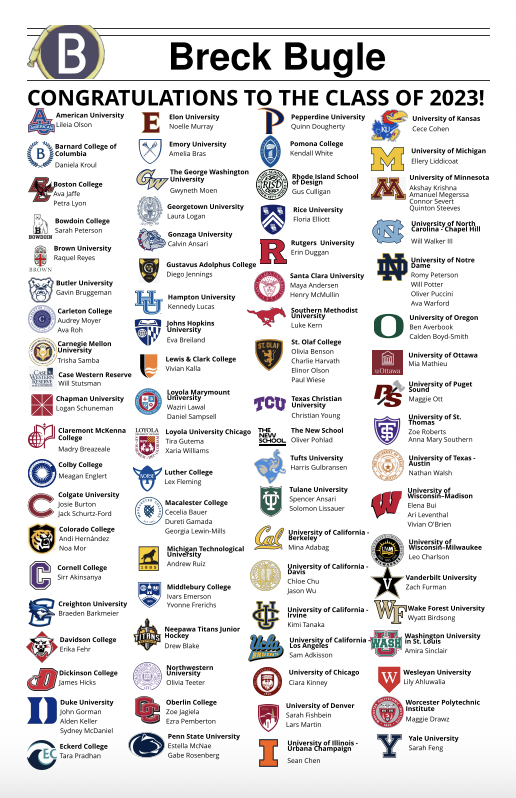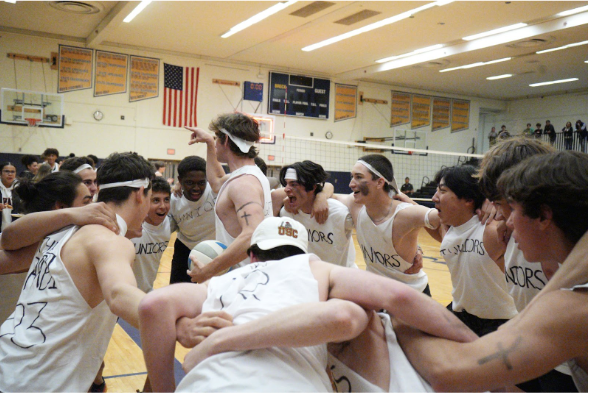
On April 14th, 2025, Mark Zuckerberg—the chief executive of Meta Platforms—took the witness stand to defend his social media empire in a landmark antitrust trial that has the potential to dismantle a company that has transformed how the world connects online. The Federal Trade Commission—an agency of the U.S. government whose mission is to enforce civil antitrust law and promote consumer protection—has contended that Meta illegally built a social media monopoly by acquiring Instagram and WhatsApp when they were still small start-ups, in 2012 and 2014, respectively. The F.T.C. is arguing that Meta’s acquisitions were part of a “buy-or-bury strategy,” which, they say, centralized Meta’s online influence by depriving consumers of other social media options and edging out competition. This trial poses a significant threat to Zuckerberg’s empire; if the government succeeds, the F.T.C. is likely to force Meta to sell Instagram and WhatsApp, potentially altering a long pattern in which big tech companies have historically snatched up younger rivals.
But what does all of that even mean? And more importantly, why should it matter to us as Breck students at all? In an effort to answer these questions for myself and for the Bugle’s readers, I interviewed E. Michelle Drake—a shareholder at Berger Montague and the head of its Minneapolis branch—who litigates on behalf of plaintiffs in cases against large corporations. She is also a Breck parent to Phoenix and Farrah Flamenbaum, classes of 2026 and 2029.
When asked why she pursued this type of law, Ms. Drake told me that she “like[s] to help people and [doesn’t] like bullies.” Today—with trillion-dollar companies like Meta controlling many of the products that consumers can access—it often feels like large corporations are able to abuse their power and act like bullies. “Being a lawyer,” said Ms. Drake, “is one way to help even the playing field.”
Speaking of law—what is this antitrust business, anyway? It pops up in headlines—like the Meta trial—now and then, but let’s be honest: it’s confusing, and it doesn’t exactly scream “relevant” to high school students like us. Monopolies and trusts? Weren’t those just part of that Gilded Age unit in sophomore APUSH, when the country looked shiny on the outside but was full of Robber Baron corruption underneath?
Well, it turns out antitrust law isn’t just ancient history or courtroom jargon—it’s still shaping the way we live, shop, and scroll. I asked Ms. Drake to explain antitrust law in regular, old English for those of us who zoned-out on the day Ms. Pearson, Dr. Keljik, or Mr. Grossman explained the Sherman Antitrust Act of 1890. Ms. Drake told me that, “antitrust law is one of the foundations of capitalism,” meaning without it, the American economy would look very different from the generally pro-consumer, high-competition market system we know it to be. “Antitrust law,” she said, “requires that companies fairly compete with each other.” Antitrust bans things like “price-fixing agreements,” which is where companies making similar products “get together and decide that they are not going to compete with each other, but are instead going to charge above-market prices” (i.e., five companies saying, “we’re all going to charge $15 for this product” instead of setting their own prices and competing with each other). Antitrust also ensures that companies can’t use “unfair or illegal practices in order to increase their market share” (i.e., Meta buys Instagram and WhatsApp in order to control more of the social media market share, allegedly). The “gist of antitrust law,” according to Ms. Drake, “is that competition is good.” Antitrust laws promote “better products and lower prices,” and “America’s strong antitrust laws are one of the reasons our economy has historically been so successful, and why we are world leaders in innovation,” she said.
So, now that antitrust law makes more sense, why should Breck students care about it? How does antitrust affect our lives? When I asked Ms. Drake this question, her answer was straightforward: medicine and social media. “Drug companies,” she told me, will sometimes “strike backroom deals, or abuse the court system in an effort to stifle competition and keep prices high. This can make lifesaving medicines more expensive than they should be, and hurt students and their families.” Antitrust laws can prevent this kind of corruption, giving us access to better products and lower prices, even when we don’t realize it. Relatedly, Ms. Drake raised the topic of social media—something that is very relevant and important to high school students when it comes to connecting with each other and the online world. According to Ms. Drake, allowing companies like Meta to allegedly build monopolies and wipe out competition “means that we can all get stuck with inferior products.” This might simply mean that “our social media apps are just no fun to use, but there can also be more significant consequences—like one company owning all the data that is collected about us from social media and not having anyone to compete with them who has better privacy policies.” As you can see, these monopoly-related issues pose real threats to consumers like us. Without antitrust laws, our favorite products would be more expensive and less interesting to use, and our consumer rights—like the ability to have private data—would be significantly threatened. Additionally, noted Ms. Drake, social media monopolies “can also mean we all pay higher prices for all kinds of things we buy, since so much marketing is conducted using social media.”
When I asked Ms. Drake for some examples of times she had seen antitrust law (or lack thereof) affecting regular people, she had many interesting things to share. As it relates to the current spike in egg prices, Ms. Drake asserted, “That’s partly due to bird flu, but there is also a big antitrust investigation taking place, looking at whether egg producers are taking advantage of the situation to collude with each other and jack up prices even higher.” She went on to say that, “while a dollar here or a dollar there may not seem like a big deal, when you think about all the things a regular family buys, it’s really important to everyone that companies are competing.” Addressing the Bugle’s readers directly, Ms. Drake stated, “Imagine if you went to the store, and everything was the same price. Antitrust law is one of the major ways that our economy stops that from happening.”
Ms. Drake has also worked on many of her own class action cases, where she tries to help a lot of people at the same time. She litigated against JUUL for illegally marketing vapes to teenagers. She has also stopped various background check companies from publishing false information about people—once taking legal action against a company that falsely labeled over 400,000 people as terrorists and drug traffickers. “I feel very lucky to have a job where I get to help people,” Ms. Drake said.
So, it’s true. Antitrust is important after all. Antitrust laws give us, as consumers, the right to a choice about the products we buy and the prices we pay. Antitrust laws promote innovation and competition, and they strengthen our economy. I encourage you all to follow along as the Federal Trade Commission v. Meta Platforms, Inc. trial continues over the next few weeks, because cases like this represent the backbone of our antitrust system in America.
According to Ms. Drake, “Whether you are a lawyer, a politician, a teacher, a coach, or have any other kind of job, there are always opportunities to fight for fairness. It’s easy to get so busy in your day-to-day life you don’t always make time to try to make the world better, but when you do, the rewards are immeasurable.” Caring about antitrust law means caring about, advocating for, and believing in fairness—and that’s something that should matter to all of us.





























